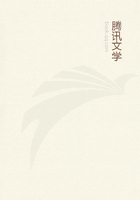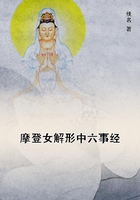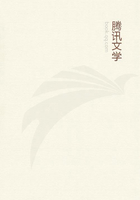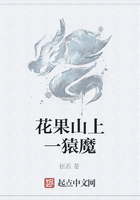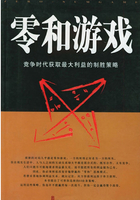Well, said Epictetus, if we were inquiring about white and black, what criterion should we employ for distinguishing between them? "The sight," he said. And if about hot and cold, and hard and soft, what criterion? "The touch." Well then, since we are inquiring about things which are according to nature, and those which are done rightly or not rightly, what kind of criterion do you think that we should employ? "I do not know," he said. And yet not to know the criterion of colors and smells, and also of tastes, is perhaps no great harm; but if a man do not know the criterion of good and bad, and of things according to nature and contrary to nature, does this seem to you a small harm? "The greatest harm." Come tell me, do all things which seem to some persons to be good and becoming rightly appear such; and at present as to Jews and Syrians and Egyptians and Romans, is it possible that the opinions of all of them in respect to food are right? "How is it possible?" he said. Well, I suppose it is absolutely necessary that, if the opinions of the Egyptians are right, the opinions of the rest must be wrong: if the opinions of the Jews are right, those of the rest cannot be right. "Certainly." But where there is ignorance, there also there is want of learning and training in things which are necessary. He assented to this. You then, said Epictetus, since you know this, for the future will employ yourself seriously about nothing else, and will apply your mind to nothing else than to learn the criterion of things which are according to nature, and by using it also to determine each several thing. But in the present matter I have so much as this to aid you toward what you wish. Does affection to those of your family appear to you to be according to nature and to be good? "Certainly." Well, is such affection natural and good, and is a thing consistent with reason not good? "By no means." Is then that which is consistent with reason in contradiction with affection? "I think not." You are right, for if it is otherwise, it is necessary that one of the contradictions being according to nature, the other must be contrary to nature. Is it not so? "It is," he said. Whatever, then, we shall discover to be at the same time affectionate and also consistent with reason, this we confidently declare to be right and good. "Agreed." Well then to leave your sick child and to go away is not reasonable, and I suppose that you will not say that it is; but it remains for us to inquire if it is consistent with affection. "Yes, let us consider." Did you, then, since you had an affectionate disposition to your child, do right when you ran off and left her; and has the mother no affection for the child? "Certainly, she has." Ought, then, the mother also to have left her, or ought she not? "She ought not." And the nurse, does she love her? "She does."
Ought, then, she also to have left her? "By no means." And the pedagogue, does he not love her? "He does love her." Ought, then, he also to have deserted her? and so should the child have been left alone and without help on account of the great affection of you, the parents, and of those about her, or should she have died in the hands of those who neither loved her nor cared for her? "Certainly not." Now this is unfair and unreasonable, not to allow those who have equal affection with yourself to do what you think to be proper for yourself to do because you have affection. It is absurd.
Come then, if you were sick, would you wish your relations to be so affectionate, and all the rest, children and wife, as to leave you alone and deserted? "By no means." And would you wish to be so loved by your own that through their excessive affection you would always be left alone in sickness? or for this reason would you rather pray, if it were possible, to be loved by your enemies and deserted by them? But if this is so, it results that your behavior was not at all an affectionate act.
Well then, was it nothing which moved you and induced you to desert your child? and how is that possible? But it might be something of the kind which moved a man at Rome to wrap up his head while a horse was running which he favoured; and when contrary to expectation the horse won, he required sponges to recover from his fainting fit. What then is the thing which moved?
The exact discussion of this does not belong to the present occasion perhaps; but it is enough to be convinced of this, if what the philosophers say is true, that we must not look for it anywhere without, but in all cases it is one and the same thing which is the cause of our doing or not doing something, of saying or not saying something, of being elated or depressed, of avoiding anything or pursuing: the very thing which is now the cause to me and to you, to you of coming to me and sitting and hearing, and to me of saying what I do say. And what is this? Is it any other than our will to do so? "No other." But if we had willed otherwise, what else should we have been doing than that which we willed to do? This, then, was the cause of Achilles' lamentation, not the death of Patroclus; for another man does not behave thus on the death of his companion; but it was because he chose to do so. And to you this was the very cause of your then running away, that you chose to do so; and on the other side, if you should stay with her, the reason will be the same. And now you are going to Rome because you choose; and if you should change your mind, you will not go thither. And in a word, neither death nor exile nor pain nor anything of the kind is the cause of our doing anything or not doing; but our own opinions and our wills.
Do I convince you of this or not? "You do convince me." Such, then, as the causes are in each case, such also are the effects. When, then, we are doing anything not rightly, from this day we shall impute it to nothing else than to the will from which we have done it: and it is that which we shall endeavour to take away and to extirpate more than the tumours and abscesses out of the body. And in like manner we shall give the same account of the cause of the things which we do right; and we shall no longer allege as causes of any evil to us, either slave or neighbour, or wife or children, being persuaded that, if we do not think things to he what we do think them to be, we do not the acts which follow from such opinions; and as to thinking or not thinking, that is in our power and not in externals. "It is so," he said. From this day then we shall inquire into and examine nothing else, what its quality is, or its state, neither land nor slaves nor horses nor dogs, nothing else than opinions. "I hope so." You see, then, that you must become a Scholasticus, an animal whom all ridicule, if you really intend to make an examination of your own opinions: and that this is not the work of one hour or day, you know yourself.

